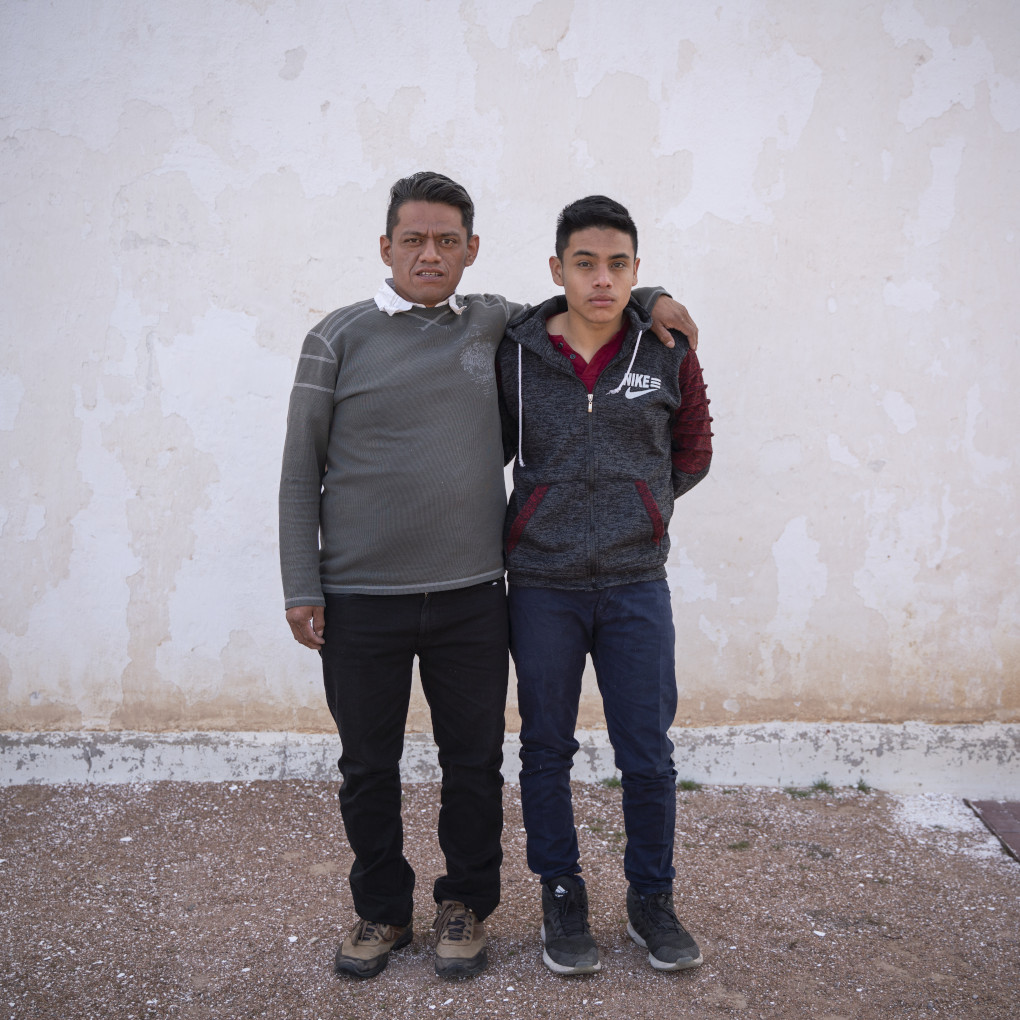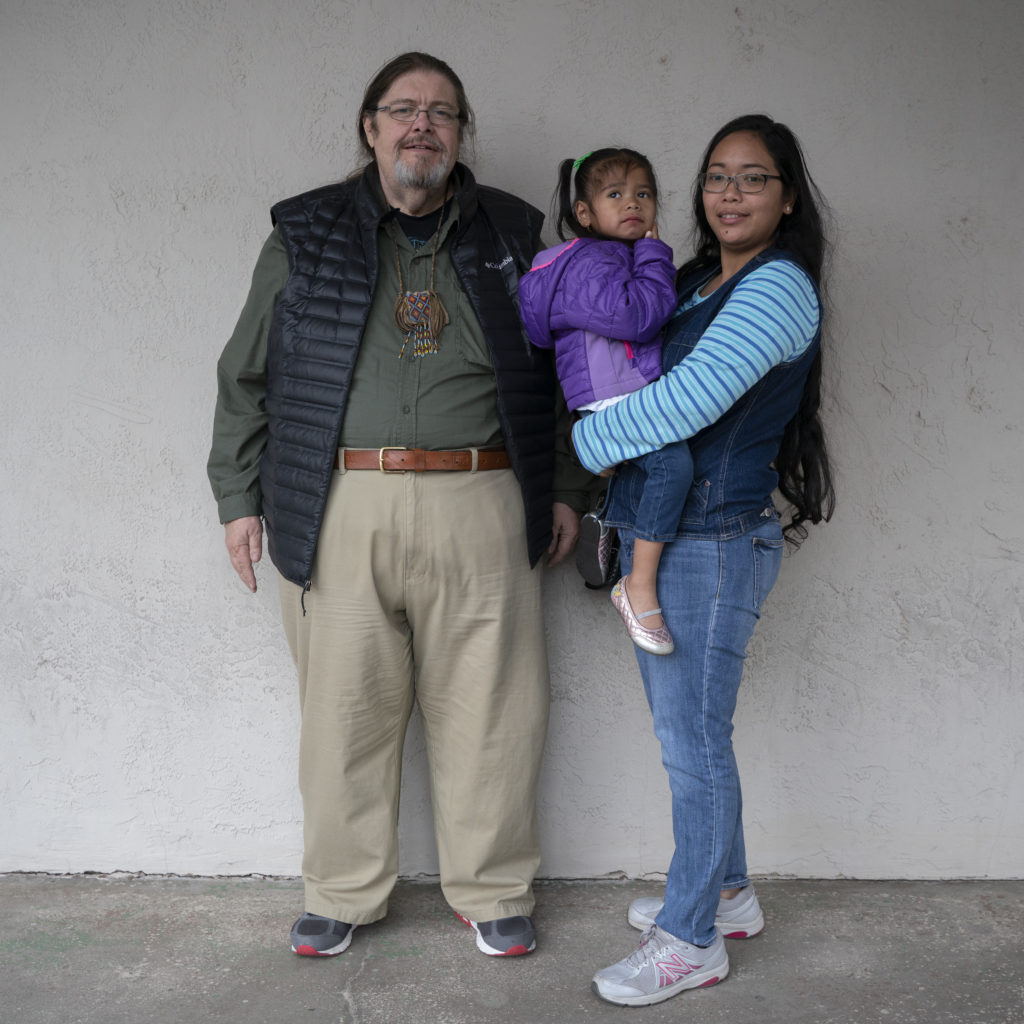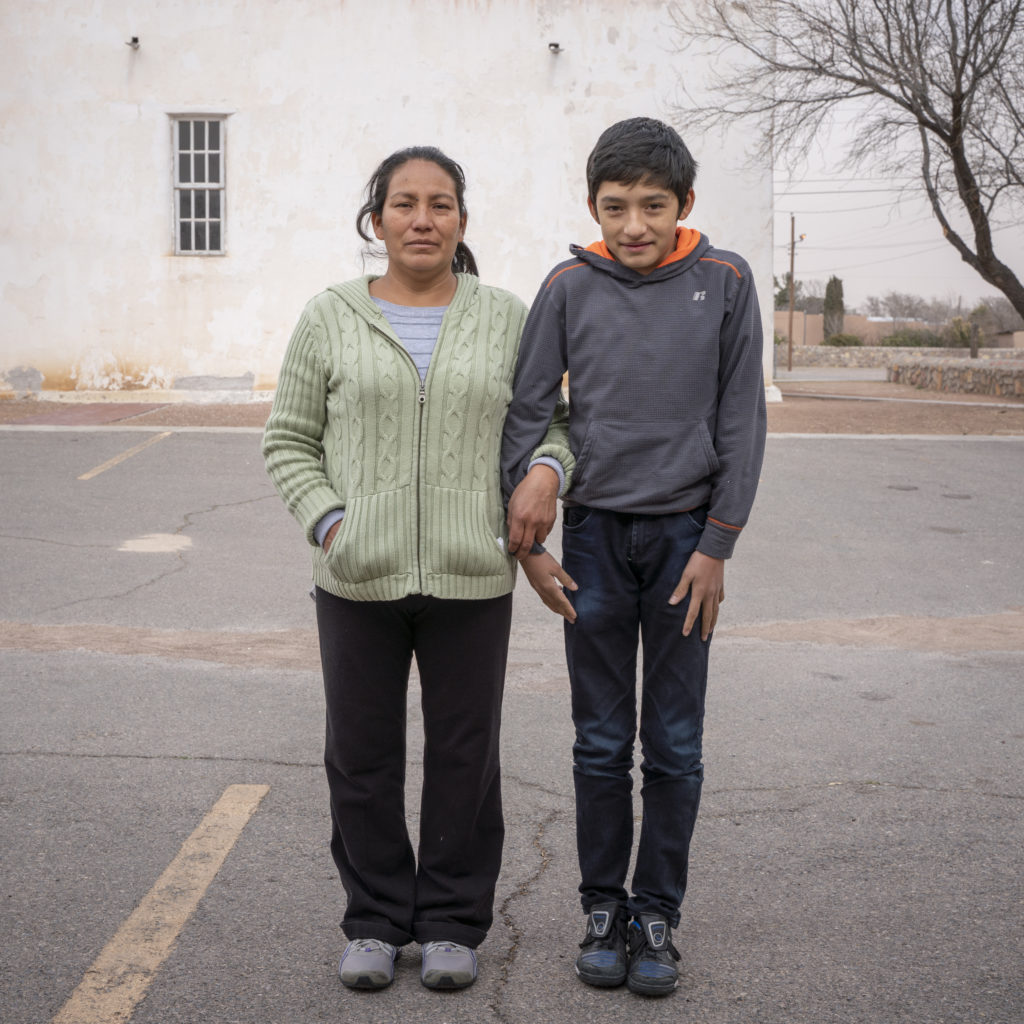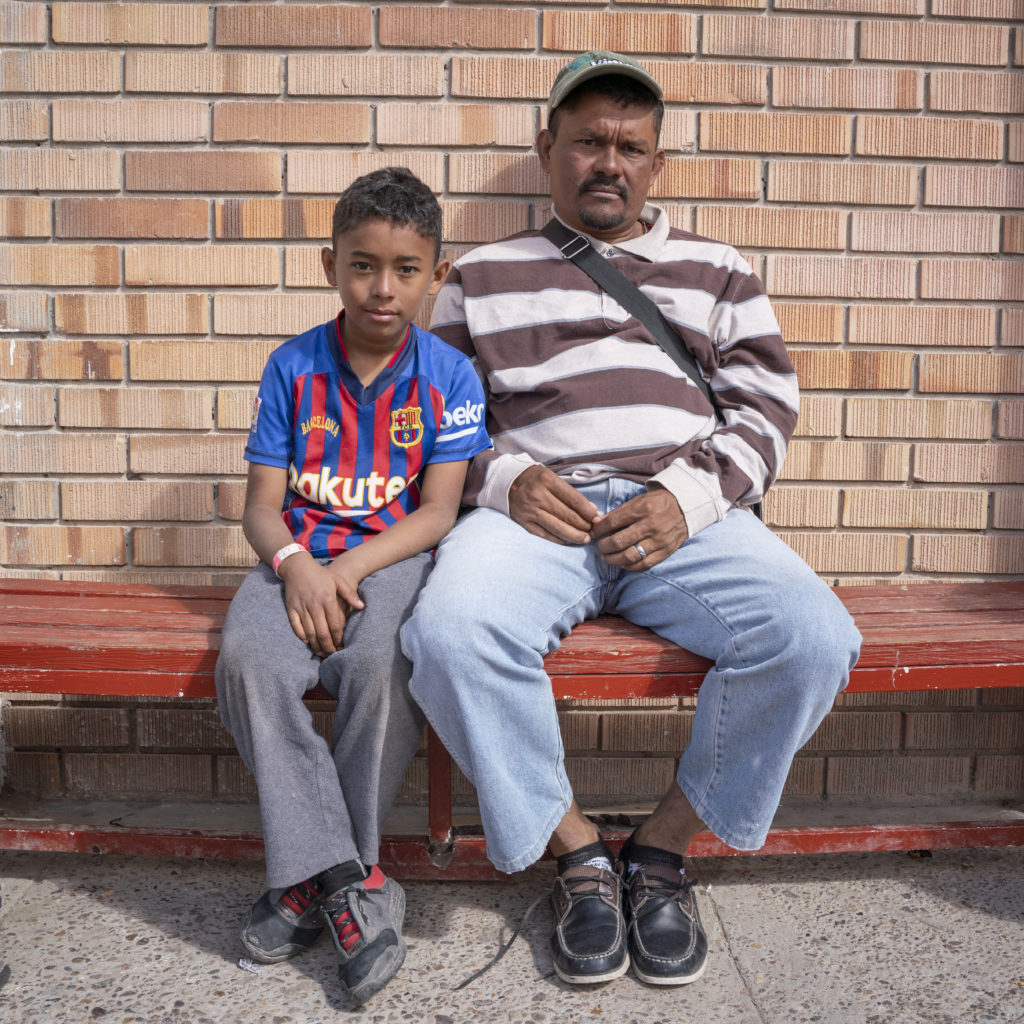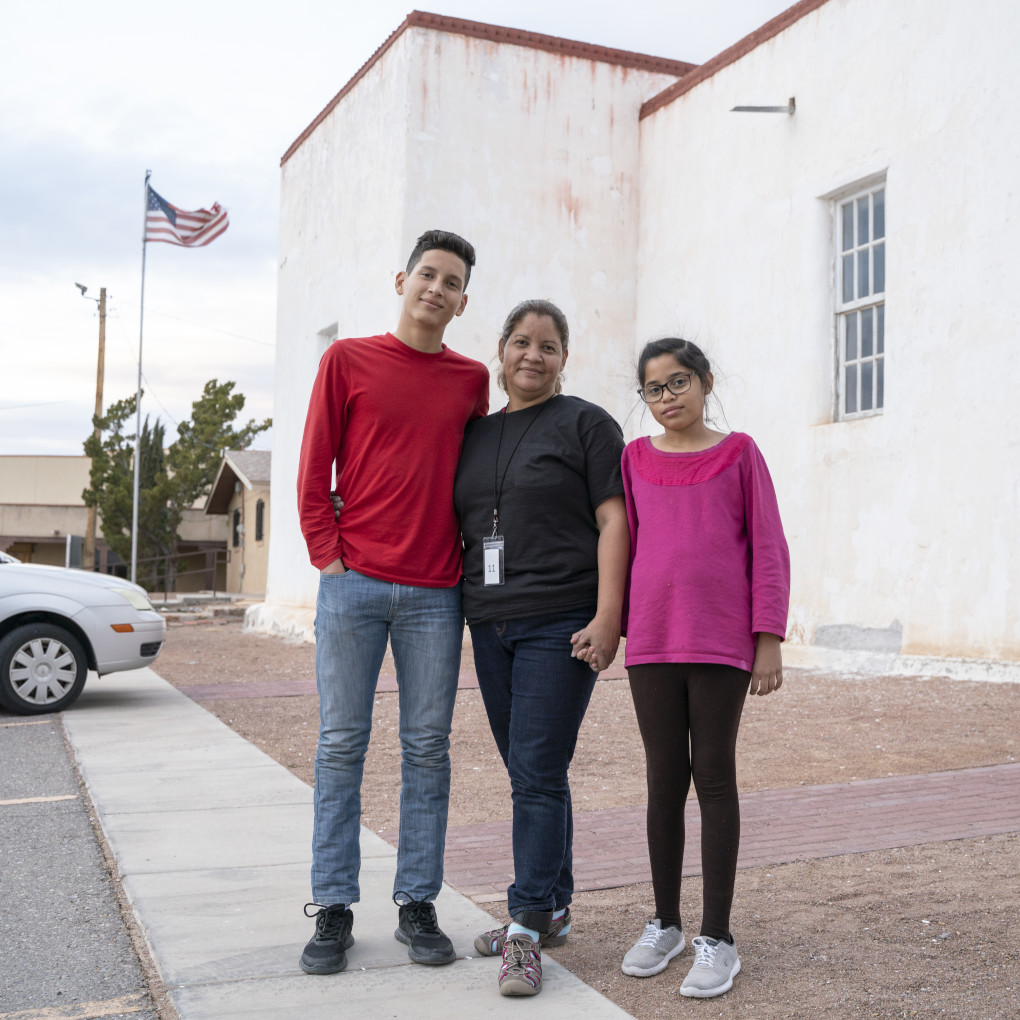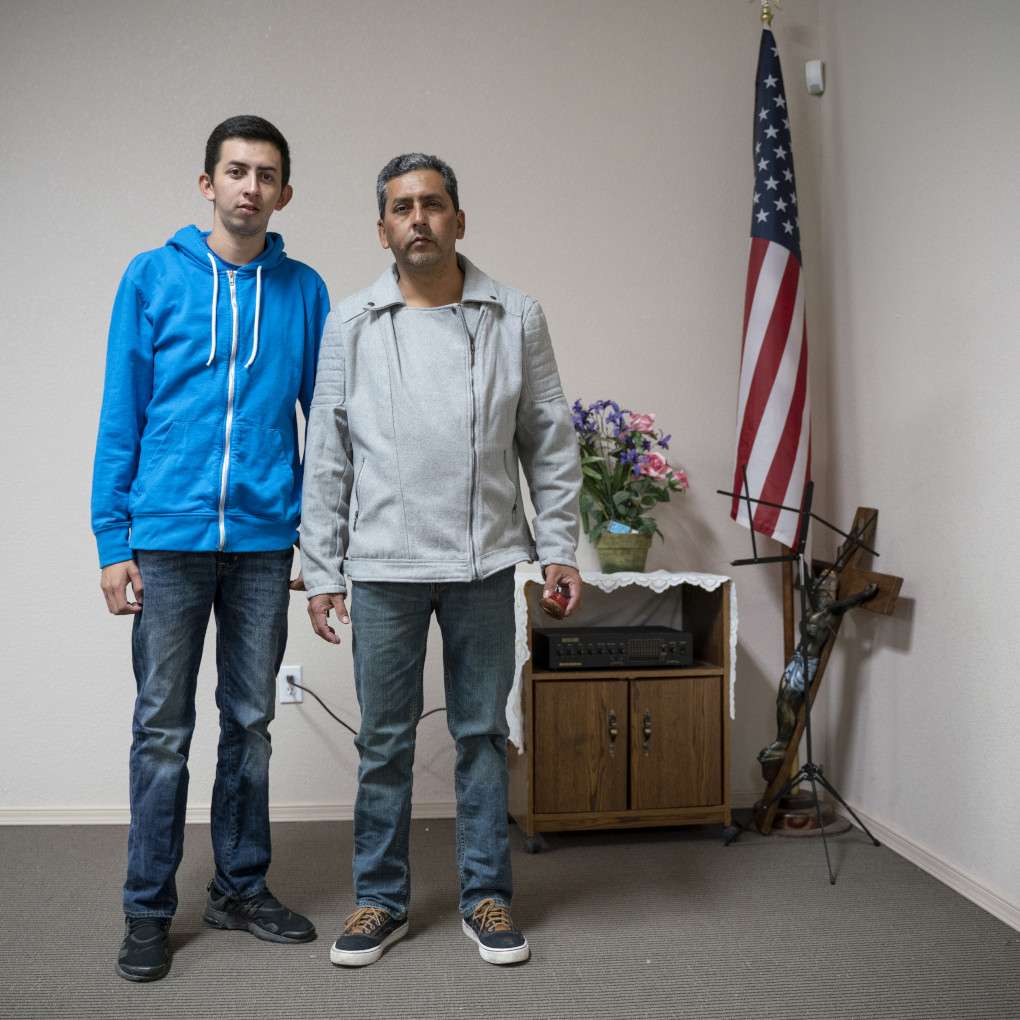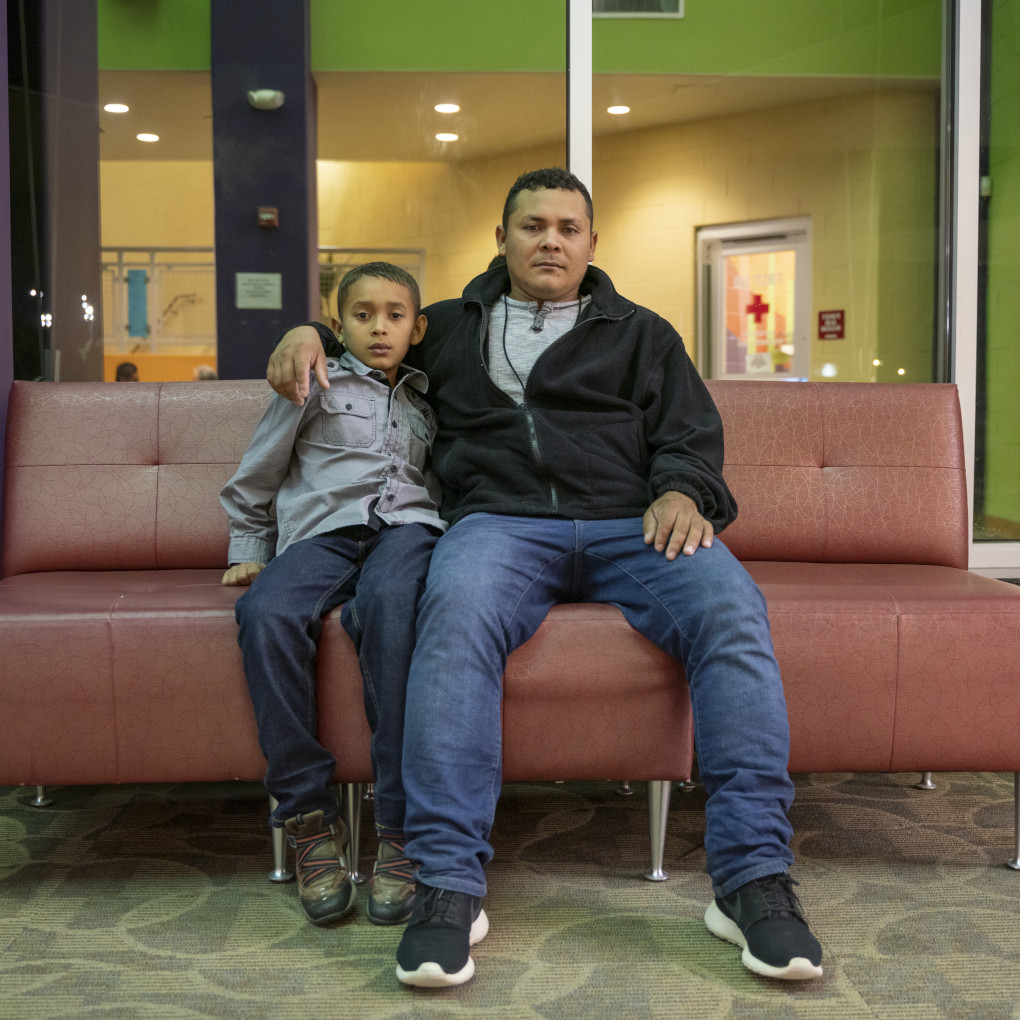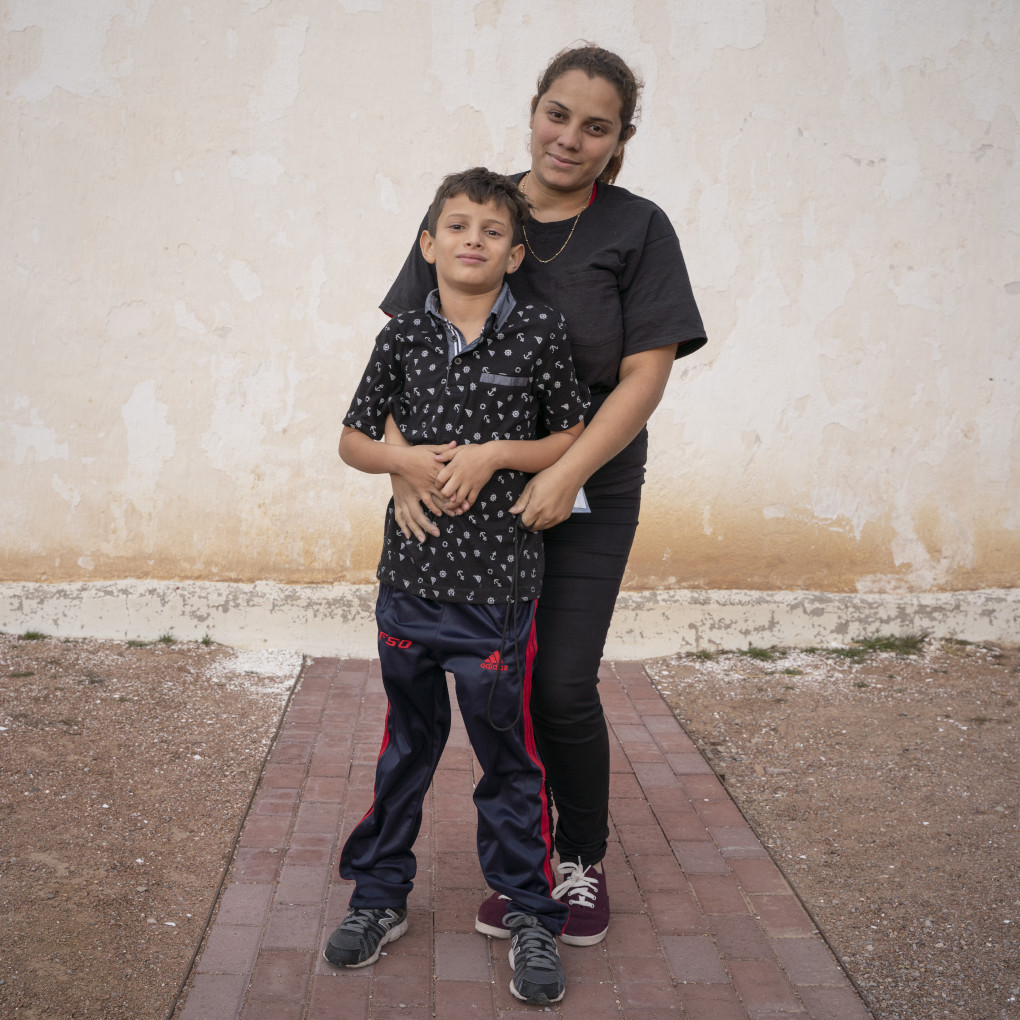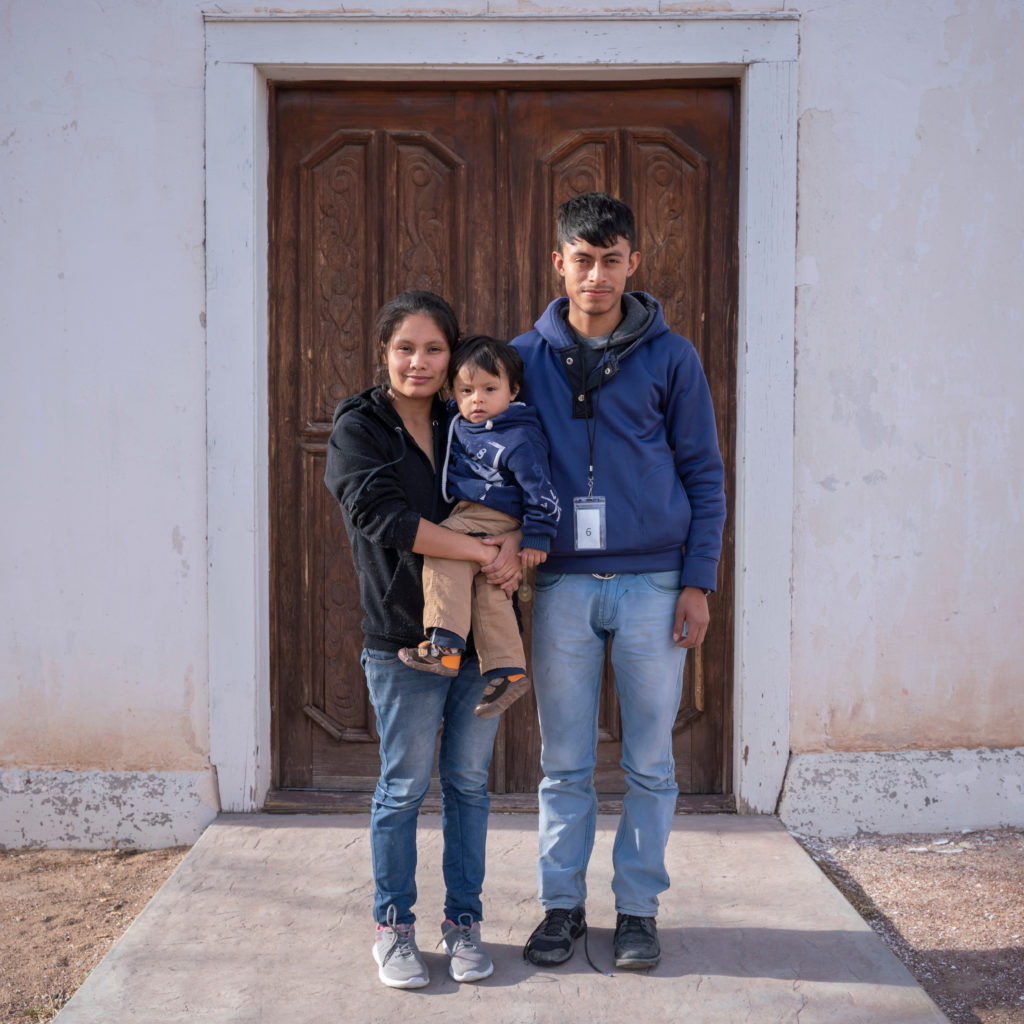(ASKED NOT TO PUBLISH LAST NAMES, OR EXACT LOCATIONS of family) Carlos, 35, and his son Alexander, 15, made their way through Mexico from Guatemala City where they left behind their families and lives because of extortion threats.
15 years ago, Carlos came to the United States and worked for five years on the East Coast. When he left, his wife was pregnant with his son Alexander. When his son was five years old, he decided to come back to Guatemala.
“We didn’t have the need to immigrate,” Carlos told me. He had worked hard saving money to help his wife set up a hair salon. Things were good and Carlos had fixed up their home so it was a nice place to raise children.
“After about two or three years of the business flourishing, they started to extort us, and they started requesting this money from us. They wanted 10,000 Quetzales per month.”
They were ordered to pay this for three months, totalling 30,000 Quetzales (about $4000). “And there was a call saying if we don’t pay this money, ‘we know all of your family And in any moment, if you don’t pay this money, one of them might disappear.”
Such a sum of money would have been impossible for them to pay, Carlos explained, “My wife maybe earned 80 Quetzales per day.” ($10) Carlos worked doing construction jobs and remodelling around the city, and also did not earn close to enough of what would be needed to pay such a fee in the short time period of 20 days they were given.
The major motivating factor was finally when the extortionists passed by their home firing a gun to incite fear. They shot a hole through their door. “They succeeded in shooting my house, well that scared us so that the next day we woke up and got on the bus. ‘Vamos.’ We had to leave.”
In Guatemala, such a threat is always taken seriously, as there is little recourse legally.
Because of this, the family decided to close the business and leave Guatemala city to the countryside to stay with his wife’s family.
We had about 1,500 quetzales, and that’s all we had to survive with,” Carlos explained about leaving the city. In the countryside he didn’t know what to do for work. Carlos, never had worked in agriculture as he had worked solely doing remodelling. His wife’s livelihood was also taken away as long as she didn’t have a place to do hair. “We were stuck, literally in the streets,” he said, “I had my life made in Guatemala. That is what hurts me because I couldn’t do anything. I felt powerless about the situation.”
Having two kids to support, he and his wife made the difficult choice for him and Alexander to migrate to the United States. His brother who lives on the east coast, would take them in and help start the asylum process.
Carlos only hopes to work four or five years, his dream is to return for his daughter’s Quinceañera. “I come with the dream that when I return, I can give my daughter her 15 years.”
Carlos and Alexander had to cross through Mexico illegally to reach the US-Mexico border. Their 24-day-journey was difficult, making two attempts, the first of which they were apprehended by authorities.
“The rich people are the ones that have that,” he said describing his choice to pass through Mexico illegally rather than wait for a visa. Like almost all of the other Guatemalans who migrate, he couldn’t get a visa to come legally. A person must prove that they have enough money in their bank before being given a US visa. “We barely have a place to live, we can’t apply for a visa. That is why we come in this way.”
Carlos is committed to going through the legal process of claiming political asylum due to the nature of his case. He hopes to be able to start working legally soon.
Alexander wants to learn English. It had always been his goal to be a doctor, and he hopes he can continue along that path.
“We aren’t asking for much, just a little more tolerance, that’s all,” Carlos said, “We just want the opportunity to work so that our kids can overcome. That is all that we ask for.”
Carlos, 35, y su hijo Alexander, 15, hicieron su viaje por México desde la Ciudad de Guatemala donde dejaron atrás a sus familias y sus vidas a causa de amenazas de extorsión.
Hace 15 años, Carlos estuvo en Estados Unidos por cinco años trabajando en la costa este. Cuando él se fue dejó a su esposa embarazada de su hijo Alexander. Cuando su hijo Alexander tenía cinco años, decidió regresar a casa en Guatemala.
“No teníamos la necesidad de migrar,” me dijo Carlos. Él había trabajado bastante duro y ahorrado dinero para que su esposa abriera su propio salón de belleza. Las cosas iban bien, Carlos había arreglado su casa para poder un buen lugar para vivir y criar a sus hijos.
“Después de dos o tres años de ver que nuestro negocio estaba prosperando, comenzaron a extorsionarnos, y nos empezaron a pedir dinero. Querían 10,000 quetzales por mes,”
Les demandaron que pagaran esto por tres meses, pagando un total de 30,000 quetzales (aproximadamente $4,000). “Nos llamaron y nos dijeron que, si no pagamos el dinero, ‘conocemos a toda tu familia y en cualquier momento, Si no pagas, uno de ellos puede desaparecer.”
Tal cantidad de dinero hubiera sido imposible para ellos pagar, me explico Carlos, “Mi esposa quizás gana 80 quetzales por día.” ($10) Carlos trabajaba en construcción y en remodelación en la ciudad, y tampoco ganaba lo suficiente para poder pagar esa cuota en 20 días, el poco tiempo que les habían dado para pagar.
El principal factor que lo motivó finalmente, fue cuando los extorsionistas pasaron y balearon su casa, para asustarlos. Una bala pasó por la puerta principal de su casa. “Tuvieron éxito en balacear mi casa, pues eso nos asustó, y decidimos subir a un autobús el siguiente día. ‘Vamos’ Nos tuvimos que ir.”
En Guatemala, tales amenazas siempre se toman en serio, ya que hay pocos recursos legales. Por esta razón, la familia decidió cerrar el negocio y dejar la Ciudad de Guatemala y vivir al campo con la familia de su esposa.
Teníamos más o menos como 1,500 quetzales, y era todo lo que teníamos para sobrevivir.” Carlos me explico cuando dejó la ciudad. En el campo él no sabía en qué trabajar. Carlos nunca había trabajado en agricultura ya que solamente había trabajado en remodelación. Para mi esposa, mientras no tuviera donde cortar pelo, también a ella le habían quitado su sustento. “Estábamos estancados, literalmente en las calles,” dijo él. “Yo tenía mi vida echa en Guatemala. Es lo que me duele, porque no podía hacer nada. Me sentía impotente sobre la situación,”
Al tener dos hijos que mantener, él y su esposa tomarán la difícil decisión para él y Alexander de migrar a los Estados Unidos. Su hermano que vive en la costa este, los recibiría y los ayudaría con el proceso de asilo político.
Carlos espera poder trabajar cuatro o cinco años, y su sueño es poder regresar a casa para la Quinceañera de su hija. “Yo vengo con el deseo de poder regresar y darle a mi hija su fiesta de 15 años.”
Carlos y Alexander tuvieron que pasar por México ilegalmente para llegar a la frontera de México-Estados Unidos. Su viaje de 24 días fue difícil, haciendo dos intentos, la cual la primera fueron detenidos por las autoridades
“La gente de dinero son las que tienen eso,” dijo él explicando su decisión de pasar por México como ilegal, en vez de poder obtener una visa. Como todos los otros guatemaltecos que emigran, él no pudo obtener una visa para entrar legalmente. La persona debe probar que tienen suficiente dinero en el banco para poder obtener una visa por USA. “Muy apenas tenemos un lugar donde vivir, no podemos pedir una visa. Por eso nos venimos de esta manera.”
Carlos está dispuesto a pasar por el proceso legal para pedir asilo político, a causa de la naturaleza de su causa. Espera poder trabajar pronto legalmente.
Alexander quiere aprender inglés. Siempre ha sido su meta de ser doctor y espera poder seguir por ese camino.
“No estamos pidiendo mucho, solo un poco de tolerancia, es todo,” dijo Carlos, “Solo queremos la oportunidad de trabajar para que nuestros hijos puedan seguir adelante. Es todo lo que pedimos,”
The Faces of Immigration Project is a 40 Day photo journal series used to highlight the stories of all Immigrants. The project is meant to shed light on some of the many reasons people have for immigrating to the U.S. Statements and stories have been edited for content, clarity, and brevity and may not reflect the entirety of an Immigrant’s reasons for immigrating to the United States.
By Paul Ratje

